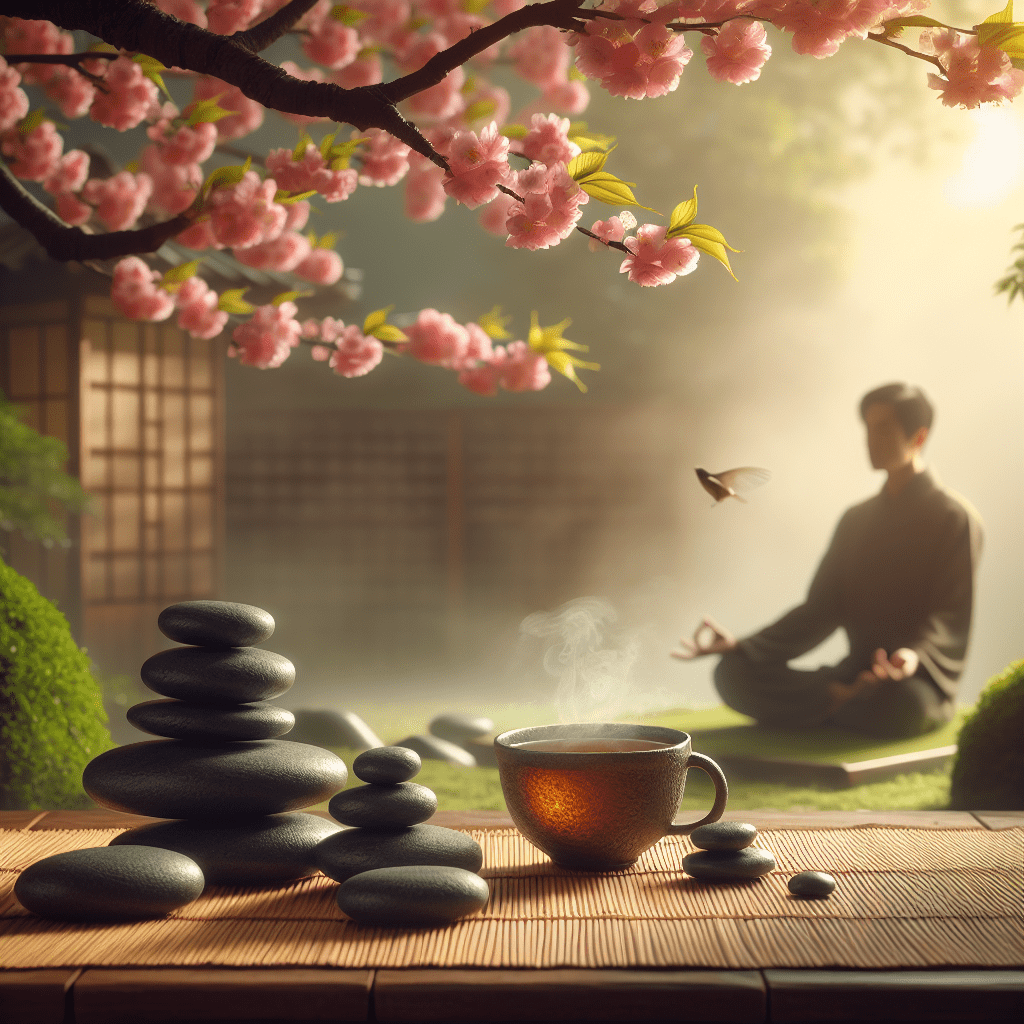In today’s fast-paced world, many of us are seeking balance, not just in our schedules, but in our very approach to health. While modern medicine offers incredible solutions for acute problems, ancient Eastern wellness traditions provide wisdom that focuses on preventing imbalance before it manifests as disease. These age-old practices aren’t relics of the past—they’re living traditions that have sustained human health for thousands of years.
Eastern Wellness Wisdom draws from millennia-old healing systems like Traditional Chinese Medicine (TCM) and Ayurveda, which view health holistically. Unlike approaches that treat symptoms in isolation, these Eastern traditions see the human body as an interconnected ecosystem where physical, mental, and emotional aspects must work in harmony. This perspective isn’t just ancient philosophy—it’s increasingly validated by modern science as we discover the connections between stress, emotions, and physical health.
The Timeless Relevance of Eastern Healing Traditions
The beauty of Eastern Wellness Wisdom lies in its timeless principles. Dating back more than 5,000 years, systems like Ayurveda from India and TCM from China developed comprehensive approaches to maintaining health and treating illness. These weren’t random practices but carefully observed patterns of how humans interact with nature, seasons, and their environments.
“Traditional healing systems like TCM and Ayurveda view humans as microcosms of the universe,” explains Dr. Lin Chen, a TCM practitioner. “The same forces that operate in nature—like changing seasons, elements, and energy cycles—also operate within us.”
What makes these ancient approaches so relevant today is their focus on prevention and whole-person care. As we face modern challenges like chronic stress, environmental toxins, and lifestyle diseases, Eastern Wellness Wisdom offers time-tested practices that address the root causes of imbalance rather than merely masking symptoms.
Daily Practices to Enhance Vitality and Well-being
### The Gentle Power of Qigong
Among the treasures of Eastern Wellness Wisdom, Qigong stands out as a practice that anyone can integrate into daily life. Combining gentle movement, breath control, and meditation, Qigong helps cultivate and balance “qi” or vital energy.
“Qigong is like a daily tune-up for your energy system,” says Maria Wong, a Qigong instructor with 15 years of experience. “Just 15 minutes of practice can clear energy blockages, reduce stress, and boost immunity.”
Research supports these benefits, with studies showing that regular Qigong practice can lower blood pressure, improve balance, and enhance immune function. The slow, intentional movements also create a moving meditation effect, calming the nervous system and promoting mental clarity.
Yoga: Ancient Postures for Modern Well-being
While yoga has become mainstream in Western fitness, its roots as a holistic health system run deep in Eastern Wellness Wisdom. Beyond the physical postures, yoga encompasses breathing techniques (pranayama), ethical principles, and meditation practices that balance body and mind.
Regular yoga practice offers remarkable benefits for modern health challenges. Research shows it can reduce inflammation, improve flexibility, and even help manage conditions like anxiety and depression. The mindfulness aspect of yoga also teaches us to be present, countering the scattered attention that characterizes our digital age.
“Yoga isn’t about performing perfect poses,” explains Anita Sharma, an Ayurvedic practitioner and yoga teacher. “It’s about creating space in your body and mind where healing can happen naturally.”
Meditation and Mindfulness: Cultivating Inner Peace
Perhaps no Eastern wellness practice has gained more scientific validation than meditation. This cornerstone of Eastern Wellness Wisdom teaches us to observe our thoughts without attachment, creating space between stimulus and response.
Regular meditation practice has been shown to physically alter brain structure, increasing gray matter in regions associated with self-awareness, compassion, and introspection. For those new to meditation, even five minutes daily can begin to shift patterns of stress and reactivity.
“Meditation isn’t about emptying your mind,” clarifies meditation teacher James Wu. “It’s about developing a different relationship with your thoughts—watching them like clouds passing in the sky rather than being caught in the storm.”
Nutritional Wisdom from the East
Eastern Wellness Wisdom approaches nutrition not just as fuel but as medicine. Both TCM and Ayurveda classify foods according to their energetic properties—whether they heat or cool the body, which organ systems they support, and how they balance our individual constitutions.
Seasonal Eating for Optimal Health
One powerful principle from Eastern nutrition philosophy involves eating with the seasons. This practice acknowledges that our bodies have different needs as the environment changes. In winter, warming foods like root vegetables and slow-cooked stews support the body’s need to conserve energy. In summer, cooling foods like cucumber, watermelon, and leafy greens help disperse heat.
“Eating seasonally isn’t just environmentally sustainable—it’s physiologically wise,” notes nutritionist Dr. Sarah Chang. “Foods that grow naturally in each season typically contain exactly the nutrients our bodies need during that time.”
The Healing Power of Herbs and Teas
Eastern Wellness Wisdom has long recognized the medicinal properties of herbs and plants. Simple herbal teas can offer powerful health benefits as part of your daily routine. Ginger tea supports digestion and reduces inflammation, while chamomile calms the nervous system and promotes sleep.
“In Eastern medicine, herbs aren’t just supplements—they’re foods that carry specific healing properties,” explains herbalist Thomas Lee. “Drinking tulsi (holy basil) tea daily, for example, helps the body adapt to stress while supporting immune function.”
These nutritional practices align perfectly with the philosophy behind HerbalsZen, where the power of natural botanicals and food-as-medicine principles guide wellness recommendations.
The Five Element Theory: A Framework for Balance
At the heart of TCM lies the Five Element Theory—a sophisticated framework for understanding how different aspects of health interact. The five elements—Wood, Fire, Earth, Metal, and Water—represent fundamental energetic qualities that exist both in nature and within us.
Each element corresponds to specific organs, emotions, seasons, and even times of day:
- Wood relates to the liver and gallbladder, governs planning and decision-making, and is associated with spring
- Fire connects to the heart and small intestine, governs joy and enthusiasm, and corresponds to summer
- Earth links to the spleen and stomach, governs nurturing and centeredness, and relates to late summer
- Metal associates with the lungs and large intestine, governs letting go and boundaries, and corresponds to autumn
- Water connects to the kidneys and bladder, governs willpower and fear, and relates to winter
Understanding your dominant elements can help you identify patterns in your health and emotions. If you tend toward anger or frustration (Wood imbalance), practices that support liver function—like drinking lemon water in the morning or gentle stretching—can help restore balance.
“The Five Element Theory gives us a map for understanding the relationships between seemingly unrelated symptoms,” explains Dr. Michael Chen, a TCM physician. “For instance, persistent digestive issues (Earth) and skin problems (Metal) might be connected through the ‘grandmother-grandchild’ relationship between these elements.”
Simple Techniques for Everyday Integration
Eastern Wellness Wisdom isn’t meant to be practiced only in special circumstances—it’s designed to infuse your everyday life. Here are practical ways to bring these ancient secrets into your modern routine:
Eastern Wellness Tips At-A-Glance
- Start each morning with gentle movement to awaken your energy
- Practice mindful breathing during stressful moments
- Eat with the seasons to align with nature’s rhythms
- End your day with gratitude reflection
- Connect with others through shared wellness practices
Morning Energy Practices
Start your day with a simple Qigong practice called “Knocking on the Door of Life.” Stand with feet shoulder-width apart, gently tap your lower back with loose fists for about two minutes. This stimulates the kidney area—considered the root of vitality in TCM—and awakens your energy for the day ahead.
Mindful Breathing Throughout the Day
Set reminders to practice “4-7-8 breathing” a few times daily: inhale for 4 counts, hold for 7, exhale for 8. This parasympathetic breathing pattern activates your body’s relaxation response, counteracting stress hormones and promoting clarity.
Gratitude Practice
Eastern wisdom traditions emphasize that emotional and mental states directly impact physical health. End each day by writing down three specific things you’re grateful for. Research shows this simple practice reduces stress hormones and improves sleep quality.
“Gratitude isn’t just a nice sentiment—it’s medicine for the heart,” says meditation teacher Lily Zhang. “In TCM, joy is the emotion that nourishes the heart system. Daily gratitude practice creates joy micro-doses that strengthen our emotional resilience.”
The Community Aspect: Wellness Beyond the Individual
Eastern Wellness Wisdom recognizes that true health extends beyond individual practices to include our connections with others. In traditional Eastern cultures, health was never viewed as a solo pursuit but as something nurtured within families and communities.
The Healing Power of Shared Meals
In Eastern traditions, meals are more than nutrition—they’re opportunities for connection. The simple act of sharing food mindfully, without screens or distractions, nourishes both body and spirit. Consider establishing a weekly ritual where family or friends prepare and enjoy a meal together, focusing on seasonal ingredients and meaningful conversation.
Creating Supportive Practice Communities
While solo meditation or Qigong practice offers tremendous benefits, practicing with others amplifies those effects. Research shows that group meditation creates a measurable field effect that enhances individual results. Consider joining or starting a small wellness circle where you can practice together, even if just once a month.
“In Eastern cultures, the idea of ‘sangha’ or community is essential to wellness,” explains Dr. Amrita Patel, an Ayurvedic physician. “When we practice together, we create a supportive energy field that makes it easier for each person to maintain balance.”
Transforming Your Health Journey
The wisdom of Eastern wellness traditions offers a profound alternative to the reactive approach many of us have grown accustomed to. Rather than waiting for symptoms to appear, these practices empower us to actively cultivate balance every day, attuned to the natural rhythms of our bodies and the world around us.
Incorporating even one or two of these Eastern Wellness Wisdom practices into your routine can begin a transformation in how you experience health. Perhaps you’ll start with a morning cup of ginger tea, a few minutes of meditation, or simply more mindful breathing throughout your day. The beauty of these practices is that they meet you wherever you are and grow with you over time.
Tools like EASTCHI AI from HerbalsZen align perfectly with these ancient principles, offering personalized guidance based on your unique constitution and needs. By analyzing your specific patterns through the lens of Five Element Theory and other Eastern medicine frameworks, such technologies can help bridge ancient wisdom with modern life, making these time-tested approaches accessible to everyone.
As you explore Eastern Wellness Wisdom, remember that these practices aren’t about perfection but presence. Each moment you spend in mindful awareness of your body, breath, and energy is a step toward greater vitality and balance. In a world that often pulls us in countless directions, these ancient secrets offer a path back to our center—and to the natural wisdom of health that has sustained humanity for thousands of years.




